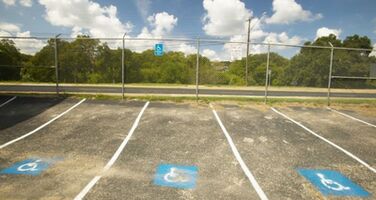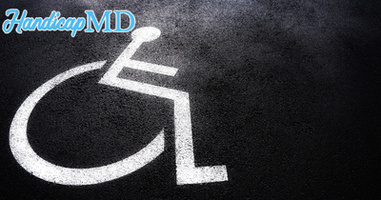
Myths vs. Facts: Debunking Common Misconceptions about Handicap Placards in New Hampshire
Introduction
Handicap placards play a vital role in enhancing accessibility and convenience for individuals with disabilities. However, like many other topics, there are often myths and misconceptions that cloud people's understanding of the subject. In this comprehensive article, we will address and debunk common myths regarding handicap placards in New Hampshire. By providing accurate information and clarifying misunderstandings, we aim to foster a more informed and empathetic community that respects the needs of individuals with disabilities.
Myths vs. Facts:
Myth 1: Placards are Only for Wheelchair Users
Fact: Handicap permits are not exclusively for wheelchair users. While individuals who use wheelchairs can benefit from these permits, they are designed to provide accessible parking for a wide range of disabilities. People with mobility impairments, heart conditions, respiratory issues, and other disabilities can also qualify for a permit if their condition meets the criteria set by the state.
Myth 2: Placards are Easy to Obtain Without Legitimate Need
Fact: The process of obtaining a handicap permit in New Hampshire involves a thorough evaluation by a medical professional. Applicants need to provide medical documentation that proves their eligibility based on their disability or medical condition. The state ensures that only those with genuine needs receive permits, preventing abuse of the system.
Myth 3: Placards are Valid Forever
Fact: Permits in NH have an expiration date. This allows the state to regularly review the individual's medical condition and ensure that the permit is still necessary. Authorized holders need to renew their permits periodically, ensuring that the system remains fair and that these are reserved for those who genuinely require them.
Myth 4: Temporary Disabilities Don't Qualify for Placards
Fact: Temporary disabilities, such as recovering from surgery or an injury, can also qualify for permits. If the temporary disability severely limits an individual's mobility, they may be eligible for a temporary permit. The duration of eligibility depends on the expected recovery period as determined by a medical professional.
Myth 5: Placards are Valid in Any State
Fact: Handicap permits are issued by individual states, and the regulations can vary. While some states have reciprocity agreements that allow authorized holders to use their permits in other states, it's crucial to check the specific rules and regulations of each state before using a permit in a different location.
Common Questions about Handicap Placards
FAQ 1: Can I use my New Hampshire disability pass in other states?
Yes, some states have reciprocity agreements that allow you to use your New Hampshire handicap pass in their parking spaces. However, it's essential to research the specific rules of the state you're visiting before using your pass there.
FAQ 2: How often do I need to renew my disability pass in New Hampshire?
Disability passes in NH need to be renewed every five years. This ensures that the authorized holders' medical conditions are regularly reviewed and that the passes are still necessary.
FAQ 3: What documentation do I need to apply for a disability pass?
You'll need to provide a medical certification from a licensed medical professional that outlines your disability or medical condition and explains why a pass is necessary for you.
FAQ 4: Can I apply for a temporary pass?
Yes, if you have a temporary disability that severely limits your mobility, you can apply for a temporary pass. The duration of eligibility will be determined by your medical professional.
FAQ 5: Are disability parking spaces enforceable by law?
Yes, disability parking spaces are legally enforceable. Unauthorized use of these spaces can result in fines and penalties, as they are reserved for individuals with disabilities who require them for accessibility.
FAQ 6: Can I lend my disability pass to a friend or family member?
No, handicap placards are non-transferable. They are issued by the New Hampshire DMV to a specific individual and should only be used when that individual with the qualifying disability is present in the vehicle.
Conclusion
Understanding the truth behind common myths about handicap placards in New Hampshire is crucial for creating a more inclusive and empathetic society. Disability passes serve to enhance accessibility and convenience for individuals with disabilities, and it's essential to respect the guidelines and regulations set by each state. By debunking misconceptions and providing accurate information, we can contribute to a more informed and supportive community for everyone.
.png)






